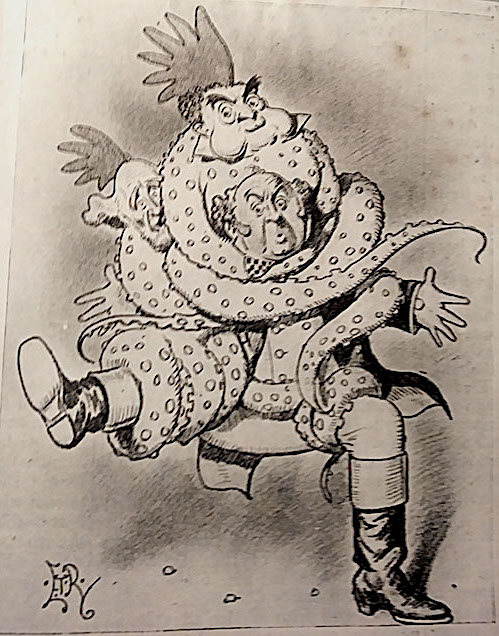Vol. 77, No. 1
pp. 1-68, 2023
Articles
-
Boswell, Addison's Cato, and The 'Minute Philosopher'
Melvyn New, Robert G. Walker
The prominence Joseph Addison’s Cato (1713) enjoyed in England to the very end of the eighteenth century is easy to overlook today, when it is never performed and rarely read. To be sure, for historians and political scientists, Cato the Younger’s importance as a vehicle of republican virtue and liberty was conveniently portrayed in Addison’s play, and its contemporary influence (beyond England) on America’s polity has been explored at length. Literary scholars, on the other hand, rarely discuss it today, although in the decades after its first appearance the play was extraordinarily well known in France as well as England, and for its moral and philosophical import as well as its political significance.
-
"One of the Last of the Classical Actresses": Lillah McCarthy (1875–1960)
John Carpenter
The new Shakespeare Memorial Theatre in Stratford-upon-Avon was opened by the Prince of Wales on the playwright’s traditional birthday in 1932; Charles Flower’s original building had been ravaged by fire on 6 March 1926. After his speech, the Prince opened the theatre with a golden key, and the audience took their seats. Slowly, the curtain lifted and Lady Keeble, the first actor to speak from the new stage, stepped forward; she read the ode to the new theatre that John Masefield, the poet laureate, had written, beginning:
Beside this house there is a blackened shell,
The theatre, that Flower built of old,
Lest English love of Shakespeare should grow cold.
He, Stratford’s citizen, established here
A home for Shakespeare that for many a year
Drew happy thousands till the fire befell.The reader was better known as Miss Lillah McCarthy, the stage name used by Lila Emma McCarthy, who already had an acting career of over 30 years to her credit, and who had received many plaudits in that time. Her name was widely known in Great Britain, the United States, Australasia and elsewhere, but today is largely forgotten. The first aim of this essay is to try to remedy that. I addition I shall attempt to judge McCarthy’s place in theatrical history. And what drove her career path? Is it possible to assess whether she had ambitions in mind from the start? Or did she bob along on the tides and currents of theatrical life, grasping at opportunities as they passed?
-
Rediscovering H. G. Pélissier (1874–1913): A Concert Party Impresario and Satirist on The West End Stage
Anthony Binns
Until my own work The Funniest Man in London, it was some time since any biography or memoir had been published on the subject of H.G. Pélissier, a pioneering and highly successful theatrical satirist, composer and impresario active in the late Victorian and Edwardian eras. Fitzroy Gardner’s Pure Folly of 1910 was the only study entirely dedicated to the subject, and even that might be more accurately described as a memoir celebrating Pélissier’s entire company The Follies. Furthermore, being published three years prior to Pélissier’s untimely death, Gardner’s work was unable to encompass the final years of his career, his scandalous marriage or the full extent of his legacy.1 So, it is surely worth revisiting this somewhat neglected, though in his day widely celebrated theatrical figure, not least because Pélissier was among the first of his kind, if not the very first, to make a successful transition from the concert party and music hall into the legitimate, mainstream West End theatre.
BOOK REVIEWS
Owning Performance/Performing Ownership: Literary Property and the Eighteenth-Century British Stage, by Jane Wessel
reviewed by Stephen Edwards
Noël Coward: The Playwright's Craft in a Changing Theatre, by Russell Jackson
reviewed by Faye Hammill
* Boswell, Addison’s Cato, and The ‘Minute Philosopher’, by Melvyn New, Robert G. Walker
* “One of the Last of the Classical Actresses”: Lillah McCarthy (1875–1960), by John Carpenter
* Rediscovering H. G. Pélissier (1874–1913): A Concert Party Impresario and Satirist on The West End Stage, by Anthony Binns
